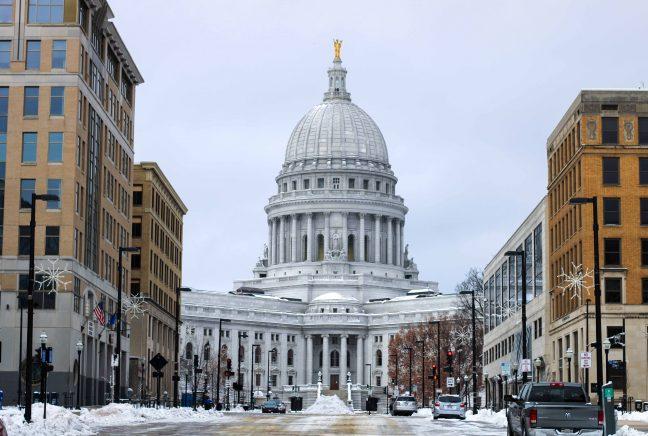Recent reports and analyses of Wisconsin’s economy indicate economic strength, even amid a potential recession.
Wisconsin’s unemployment rates are resting at 2.9% — lower than the national average of 3.5%, according to the Wisconsin Department of Workforce Development. Across the nation, there have been increases in employment in healthcare, hospitality and healthcare sectors, according to the U.S. Department of Labor.
Wisconsin has strong labor force participation, with 66.5% of the population employed as of May 2022, according to Wisconsin’s Department of Workforce Development.
These low unemployment rates are sustainable in the short term because the economy is growing at such a slow pace. But in the long term, these low unemployment rates will not be feasible, according to University of Wisconsin applied economics professor Steven Deller.
Workforce participation in Wisconsin has remained stable since the early 2000s. Prior to then, the workforce was consistently growing as more women began to work, Deller said.
But now, the supply of labor force has been capped off. Job opportunities continue to increase in Wisconsin, allowing workers the flexibility to choose from various employment opportunities, Deller said.
This may create issues in the long run, according to Deller.
“The big picture issue is we have more jobs than we have people to fill them,” Deller said.
In order to attract workers, companies now have to have a more comprehensive approach to hiring people — such as paying dignified wages or offering childcare and housing to employees, Deller said.
In Wisconsin cities — like Madison — employees have a multitude of jobs to choose from, but this is not the case for all cities and rural areas, according to Wisconsin State Rep. Francesca Hong (D-Madison). Providing employees with benefits and flexibility is something employers across the state of Wisconsin will need to work towards, Hong said.
Since the COVID-19 pandemic, many companies have struggled to get employees to return to in-person employment options, Deller said.
The pandemic caused many workers to rethink their work-life balance, and many realized they prefer to work remotely. With many employment opportunities to choose from, people are able to find jobs that accommodate remote work, Hong said.
“This provides an opportunity for folks to think about how to invest in people,” Hong said.
Though most Wisconsin residents have stable employment, there have been concerns about the potential for a recession, Deller said.
Deller said the signals are mixed — some economists predict a mild recession by the end of spring 2023, but many Wisconsin manufacturers plan to continue hiring, indicating that the job market is not cooling off.
“At minimum, there will be a slide into a mild recession and the economy will come right back out of it,” Deller said.
Wisconsin’s economy should remain relatively stable through a mild recession — in part due to high labor force participation, Deller said.
Another cause of concern and predictor of a potential recession is the current high inflation rates, Deller said. These high rates have caused short term interest rates to rise higher than long term interest rates. High inflation rates also impact any wage increases seen recently, according to Deller.
Going into the spring primary elections, concerns of a potential recession will be at the forefront of many voters’ minds. Many constituents have concerns about what is going on in the Wisconsin State Legislature, Hong said.
Aside from high inflation rates, Republicans in the state legislature have proposed a flat tax that would replace the state’s current tax structure system of a graduated-rate income tax, according to the Milwaukee Journal Sentinel.
This flat tax would increase wealth disparity in Wisconsin, according to the Wisconsin Examiner.
“A fair tax system in this state is necessary to build a more resilient economy,” Hong said.
Potential adjustments to economic systems in Wisconsin will impact all residents in different ways. But with a low unemployment rate and substantial job market, Wisconsin’s economy will remain strong, Deller said.


